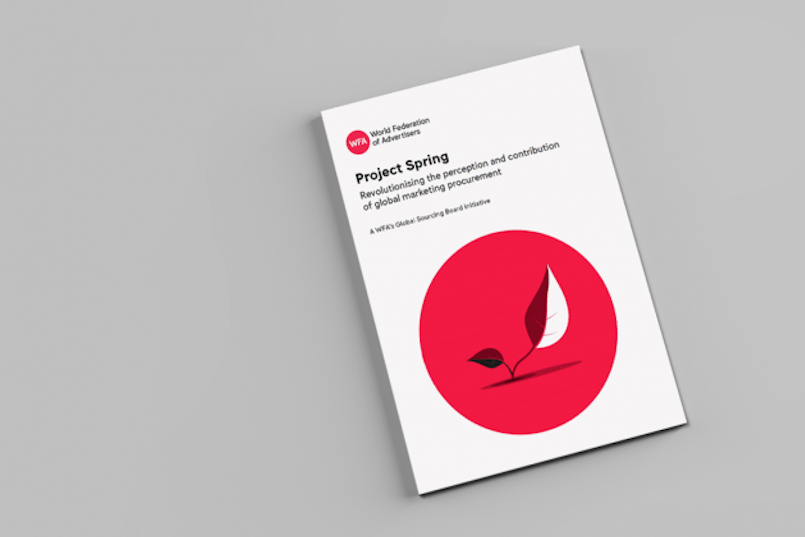To many marketers, the appearance of a Marketing Procurement Category Manager in their working environment can be misunderstood, unwelcome or (worse) strenuously resisted. Below I discuss some examples of how a small amount of curiosity into why they’re there and with a modicum of patience can deliver some unexpectedly positive marketing results.
This is an overview of a beneficial collaboration with procurement – I’ll leave the anatomy of specific procurement activities for another day…
1. Set goals
Try to understand their goals; no, I’m actually serious! This isn’t a touchy-feely request to appease what (on the face of it) can appear to be a rather annoying new stakeholder. You can definitely turn things to a positive if you spend some time up front on this discussion. If not, and your procurement person has a ‘cost-out attitude’ you don’t agree with, you’re probably going to waste a lot of energy on each other in the coming months.
Make sure you agree which areas procurement can bring value to your agency relationships, prioritise them and you’ll have a planned and productive year together.
2. Define success
Next, you should have a discussion about what success looks like. Once you both have the same understanding of adding value (see no.1), there should be a discussion on specific areas where your marketing agencies can help improve brand performance. Done correctly, this should not only be a ‘load off’ but even be a breath of new life in your relationship.
3. Share pain points
Share your pain points: a decent Procurement Category Manager will interview representatives of marketing teams and agencies alike when he/she begins the new role, and this should be part of the discussion. Think about which common issues affect you and the marketing agency working effectively. Areas like long, drawn-out RFPs or agency negotiations, ordering, lead times, approval processes, repeated or unnecessary meetings, sloppy/late/unnecessary reports, unintelligible production quotes and unconstructive feedback are all often troublesome areas that come to light.
4. Build structure
Let them help you structure and formalise the agency relationship in areas such as KPIs, Agency Performance Reviews (and incentives), pricing and getting a robust contract in place. Contract Compliance, as well as relationship and financial audits. Getting peace of mind knowing your agencies’ rates and hours are reasonable in relation to market benchmarks (Agency Fee Benchmarking) is also essential to a trust-based and transparent agency relationship. Procurement can research and benchmark the financial audits.
5. Understand function
Get a basic understanding of what a Procurement (or sometimes ‘Purchasing’) Category Management is. For Procurement professionals Category Management has become the standard review process to build a project team, analyse, find inefficiencies, select change activities and implement a change it’s essential that they are interested in Procurement Upskilling. There aren’t many A-Z guide books for this, but Jonathan O’Brien’s ‘Category Management in Purchasing’ is my favourite. However, most established procurement teams have their own linear or looped version.
A Procurement professional worth his/her salt will discuss a range of ‘value levers’ with you, instead of focusing solely on cost cutting.
6. Engage early
Early involvement: a common gripe from procurement’s stakeholders is that, as a gatekeeper or approver, they block or delay projects; procurement (by the same token) often complains of a lack of rigour in the marketer’s engagement of agencies. Early involvement – at the planning stage – as good as assures a smooth transition later on when you and your agencies start working on your ideas in earnest. It gives time to cover some essential basics like RFP Construction, quotes, negotiation, contracts, approval and uploading agencies to the payment system, PO approval etc.…all of which are best completed before you push the start button on a project.
7. Build trust
They’re not the hatchet man (you’re not either).
I once had a marketing manager colleague who was very tough, but conscientious and (mostly) fair when it came to agency reviews and remuneration. One day, however, he asked me just to “get them down to this budget level…ask them to do us a favour…whatever”, on a project that wasn’t originally in the annual scope of work. In other words, he knew it wasn’t fair and wanted me to do the dirty work. I’m ashamed to say I did ask them to ‘do us a favour’.
Our agency dealings had been open and fair up until then, but this project had to go through and there was no new money in the budget. In retrospect I felt we both treated the agency with disrespect and lost a lot of trust; all the agency fee discussions had been fact-based and logical, but when it suited us we ‘showed them who was boss’.
Some of the most successful interactions between marketing, procurement and agency were open and early, and I felt sometimes I could even be an advocate for either side when a point was worth defending. Procurement can help, of course, with structure in the commercial relationship, but playing ‘good cop/bad cop’ has limited value in what should be a win-win partnership; procurement professionals have different negotiation styles for different situations.
8. Integrate into the team
Get them involved in the marketing team. I’ve been lucky enough to be fully immersed in brand training and orientation with a marketing team of about 25, and made to feel like an extended member of the family. I even had the opportunity to make a fool of myself when I presented some of my marketing ‘ideas’ in the group workshop.
If you involve your Procurement contacts in training or regular marketing team updates, they’ll be up to speed on Marketing’s priority activities, values and language, and less likely to be a blocker (see no.6).
9. Fresh perspective
Procurement may have an interesting overview, internally and externally. While you’re ‘head down’, poring over your brand values, agency briefs and executions, there is someone who can keep apprised of new agencies on the market or how your incumbent agency/ies are performing with your other brands or product lines. They can also show you how your roster of agencies fits or doesn’t fit marketing‘s strategic requirements. They will probably have an opinion of the relative strengths and weaknesses of your global and local contracts too.
Yes (surprise), it’s Procurement.
So when the time comes for Agency Fee Benchmarking, Agency Resource Benchmarking or even research the market for new capabilities make sure procurement have had their eyes on the ball from the start.
10. Act as counsellor
Counselling or divorce? I once had the privilege of meeting an agency working for some of our niche brands, to introduce myself and get to know their business. Sadly, the relationship had already deteriorated to a point it was past saving. No one was having fun, and resentment was ingrained on both sides. I reckon if I’d arrived earlier and facilitated a discussion – on fees, lax communications, unpaid invoices, volume of work, briefing processes, mutual respect and other ‘pain points’ – we could have got a lot more out of the relationship.
As a third party, Procurement is there to help facilitate relationship discussions – it’s surprising how often ‘relationship’ is a euphemism for ‘money’ – that marketers don’t always have time for, and these should be easily combined with your regular performance reviews. So share your constructive feedback on agency relationships regularly with procurement.
On the occasions where the relationship is beyond rescue, procurement is there too to help you end the existing relationship smoothly, search for a new agency and lend structure and discipline to the process of bringing them into the roster.
In summary, a competent procurement colleague can make a strong ally. If you haven’t been nurturing this relationship, why not give it a try?
Read more on our Marketing Procurement Advisory services.




